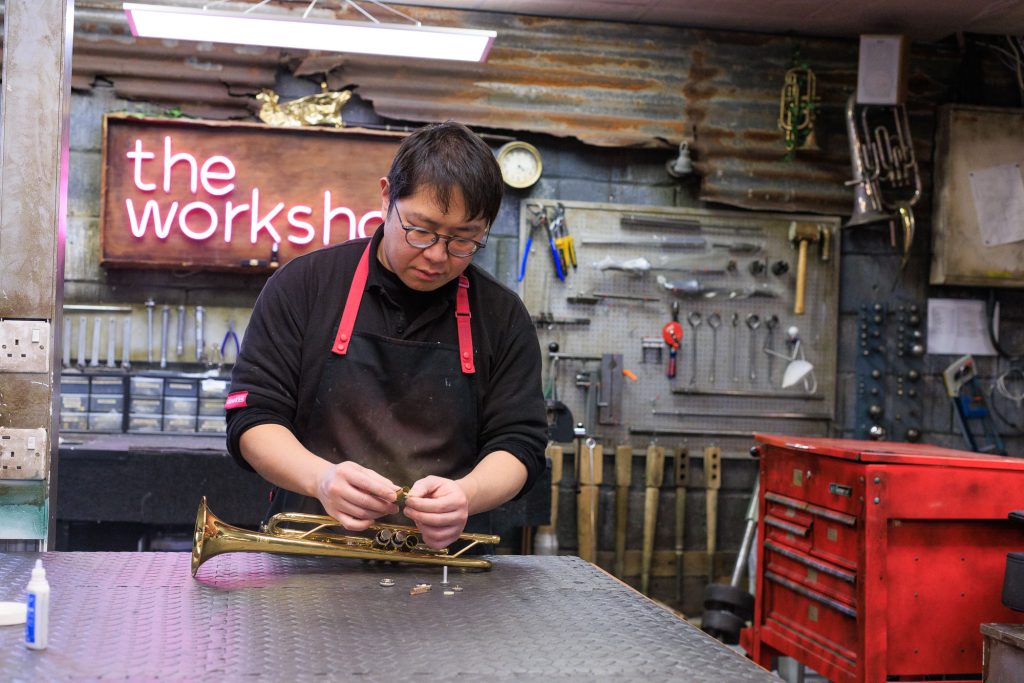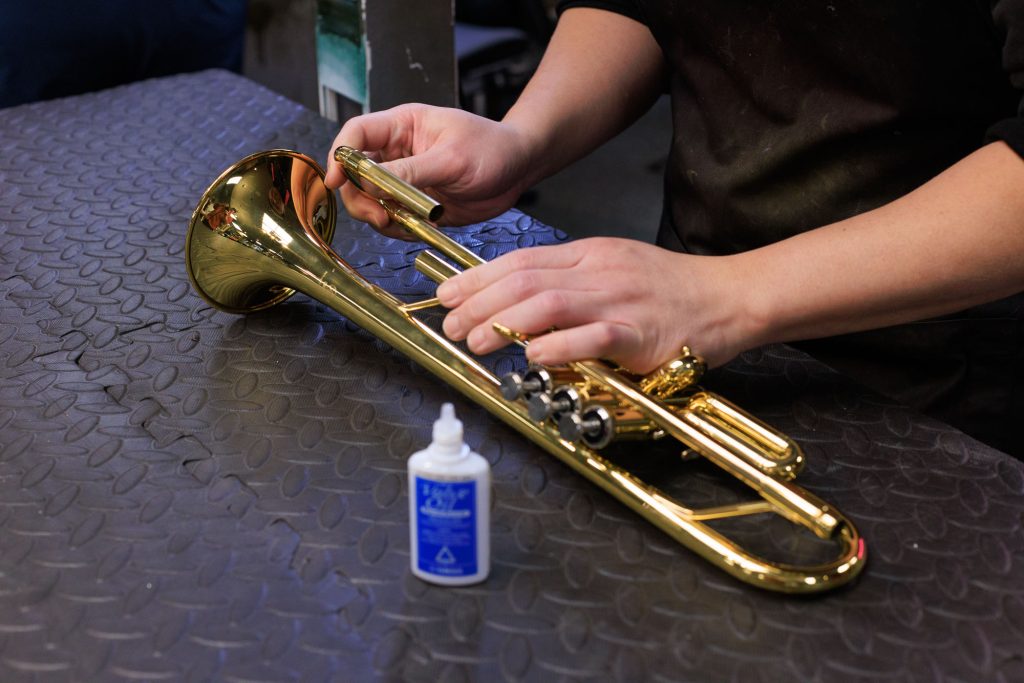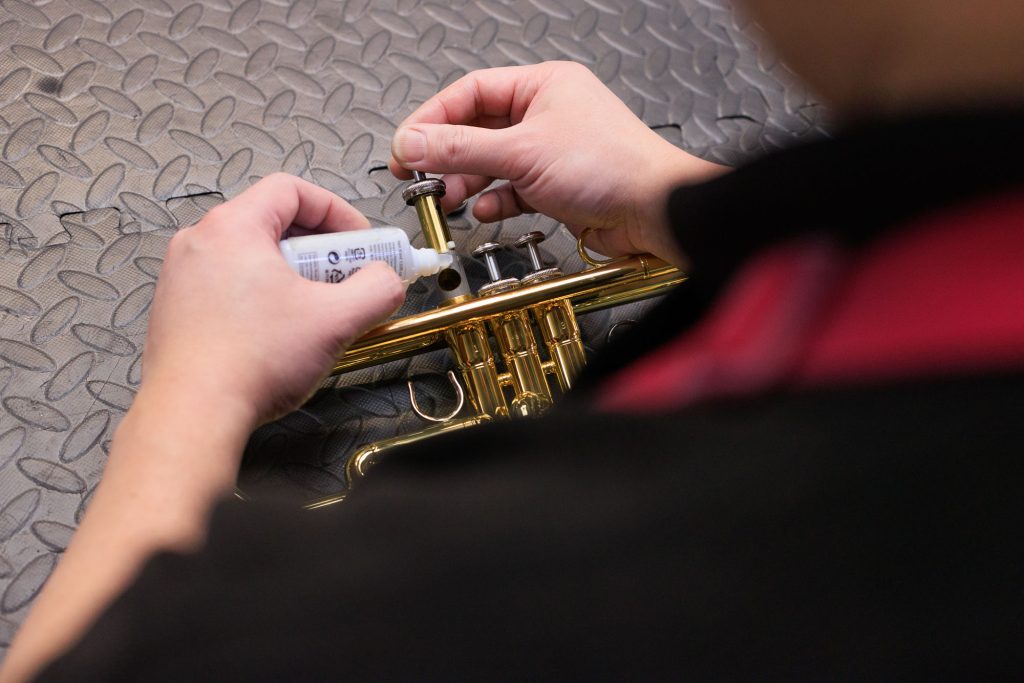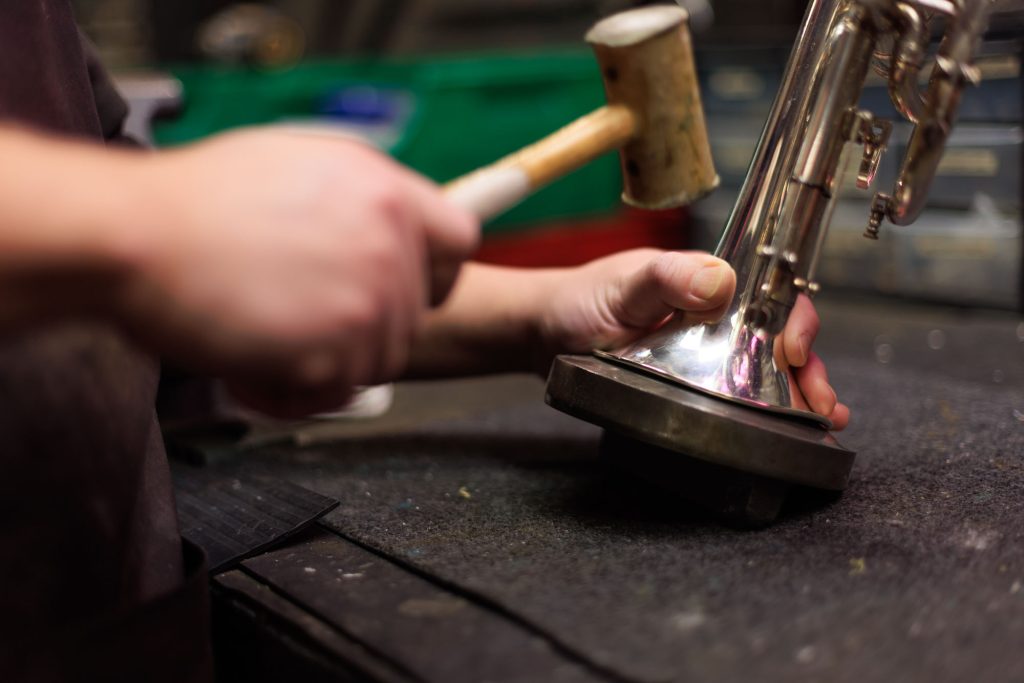Technician Tales: Common Trumpet Faults and How to Prevent Them
8th October 2025Looking after your trumpet keeps it playing smoothly and sounding its best. Small issues can quickly become big problems if ignored. Head Technician, Abi Taylor, brings you this guide on the most common trumpet faults and how to prevent them, helping you avoid an emergency trip to our workshop!

Trumpet Slides Getting Stuck
Trumpet slides adjust the pitch of your instrument. They are close-fitting tubes that need grease to stop them from seizing up. Without it, moisture can corrode the metal and lock them tight. Slide grease is absolutely necessary to keep them moving freely, so you can tune with other musicians whenever you need to.

- Static slides need thick grease to stay in place once tuned.
- Mobile slides (1st and 3rd valves) require a thinner texture, somewhere between a grease and oil so they move easily while playing.
Push and pull all slides at least once a week to ensure build-up doesn’t get beyond what reasonable hand strength can overcome. Reapply grease if they feel dry or stiff. After washing your trumpet, always re-grease the slides before reassembly.
Trumpet Valve Problems Caused by Dirt
Piston valves are close fitting inside the casings and are designed to sit in a very specific position to function properly. Valves need to be perfectly clean to move smoothly. Dirt is the most common cause of sticking or sluggish valves. Over time, a mix of moisture, old oil, and bacteria builds up inside the trumpet.
This build-up narrows the tubing and eventually weakens the sound. Pieces of this dirt can also break off and wedge into gaps within the close tolerance valve casings.
- Wash your instrument regularly.
- Wipe off old valve oil before adding more.
- Use a brush to clean the mouthpiece and receiver.
Keeping the inside clean protects your valves and improves your tone.

Valve Misalignment and Material Wear
The valve guides dictate the precise rotation of the piston as it travels up and down. This is so the port-holes in the pistons themselves align perfectly with the body tubing, allowing air to flow freely round the instrument. These guides are often made from nylon and will gradually wear down due to constant friction, which can make the valves slip out of their desired rotation.
Valve felts also have a very important job. The little doughnuts of felt that sit under and on top of the valve cap are a specific thickness, to dictate the open and closed height position of the piston inside the casing. Worn and compressed felts get thinner, making the valve ports rest too low or too high, disrupting the airflow and making a stuffy, resistant sound.
Have worn guides and felts replaced during regular workshop visits. This keeps the airflow clear and your trumpet sounding free.
Dents and How They Affect Sound
Even small dents can harm performance. A dent deeper than halfway into a tube will change tuning and response.
- Leadpipe dents are especially damaging, as this area controls tone and resistance.
- A crease in the bell flare may start cosmetic but eventually stop the bell from resonating.
- Slide dents can pinch tubes and make them immovable.
- Valve casing dents can block piston travel completely.
Never leave a mouthpiece loose in the case, as it can cause dents in critical places. Always be mindful of where you place your instrument. Use a stand or put it safely in a hard case between practice.

Conclusion
Most trumpet faults come down to care and maintenance. Keep your slides greased, valves clean, and avoid dents. The aim is to prevent emergency repairs, but regular check-ups in our workshop will keep your trumpet reliable and sounding its best.